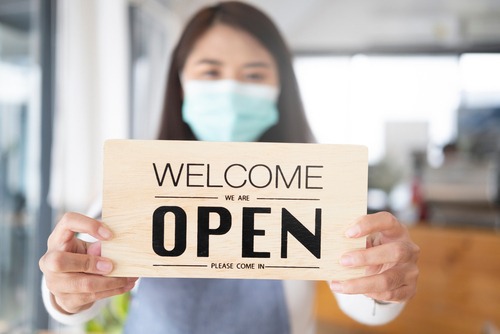
The state House of Representatives recently advanced legislation that would enable small businesses to operate during state disasters.
The One Staffer-One Shopper Bill (House Bill 747) would allow small retail stores to remain open during disasters if owners limit capacity to one staffer interacting with one shopper in a store at any given time.
The bill also allows small retailers to provide curbside pickup service in lieu of opening to customers.
State Rep. Brad Roae (R-Crawford/Erie) originally introduced the bill in April 2020, but the bill was not considered in the Senate. He reintroduced the bill earlier this year.
Gov. Tom Wolf shut down most small businesses last spring because of the COVID-19 pandemic. Exemptions were made for some small businesses, but the criteria were not made public.
Opponents to the disaster declaration pointed out that box stores were allowed to stay open while small businesses were shut down. In addition, state-run liquor stores were permitted to offer curbside pickup service, but small businesses were not.
The bill heads to the Senate for consideration.
The House also recently approved several other economic recovery measures.
“This week, our caucus heard from Pennsylvania’s employers and job creators that they need real changes and government action to ensure they can survive the economic effects of this pandemic and government shutdowns,” House Majority Leader Kerry Benninghoff (R-Centre/Mifflin) said. “This week, the House Republican Caucus took the lead in our continued efforts to provide for an economic recovery by prioritizing our small businesses, engaging in significant regulatory reform, and making government more responsive to the needs of the private sector.”
The House passed House Resolution 88, which would require the Joint State Government Commission to conduct a study of regulatory waivers issued by the Bureau of Professional and Occupational Affairs.
Additionally, six bills were advanced.
House Bill 72 would create an enhanced review process for major regulations that impose a substantial cost burden on the Commonwealth.
House Bill 139 would create an act providing for the administration of permits by state agencies, a tracking system for permit applications, the establishment of permit programs, and annual reports.
House Bill 288 would create the State Agency Regulatory Compliance Officer Act.
House Bill 681 would provide for economic mobility for health care practitioners.
House Bill 939 would establish the Independent Office of the Repealer.
House Bill 950 would give the General Assembly greater authority in regulatory repeals.